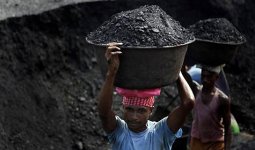bilby
Fair dinkum thinkum
- Joined
- Mar 6, 2007
- Messages
- 40,353
- Gender
- He/Him
- Basic Beliefs
- Strong Atheist
You know, it's worth pointing out that easing back on incentives for having children and spreading awareness about population levels wouldn't actually be the same thing as genocide.
It's also not the same thing as rapidly and dramatically cutting population.
Indeed, I would very much doubt that it would have much impact at all - the same effort put into providing a good, general, primary education to girls in Africa would likely be far more effective.
I certainly don't have any major objection to removing any government incentives to have children. But I seriously doubt that doing so would have any worthwhile impact on climate change - and certainly not in the next century or so.
I wouldn't want to remove the incentives whose function is to help the child that is born, because that would be punishing the child unjustly. But in a hypothetical scenario where we needed to leverage every tool at our disposal, I see a valid place for policies/campaigns that would (a) remind everyone of the impact of having a child, (b) encouraging the adoption of children who are already born and need caregivers, (c) generously reward people who do not have children, and (d) dialing back on the incentives that might cause reluctant couples to be more willing to have a child. All combined with comprehensive education, contraception, and abortion services. Create a culture where having biological children is regarded with the same shake of the head that people who wear mink fur sometimes receive, where it's taboo to just carry a fetus to term without doing due diligence and checking the adoption registry to see if an abortion wouldn't be better for the planet. Get that total back down below 6 billion, or even less, simply by not replacing the ones who naturally die with one or two more. It won't solve our problems, but then again neither will any other measure on its own. And regardless, it will have prevented whatever suffering the people who are not born would have endured, whether by climate-related pressures or otherwise in their lives, while simultaneously making it easier to maintain a comfortable standard of living for everyone else.
Sounds great.
But it's going to have almost no short to medium term impact on climate change. Implement all of that, worldwide, tomorrow, and total world population over the next three decades will be reduced by only a tiny fraction. The impact on climate change would be negligible in that timeframe.





